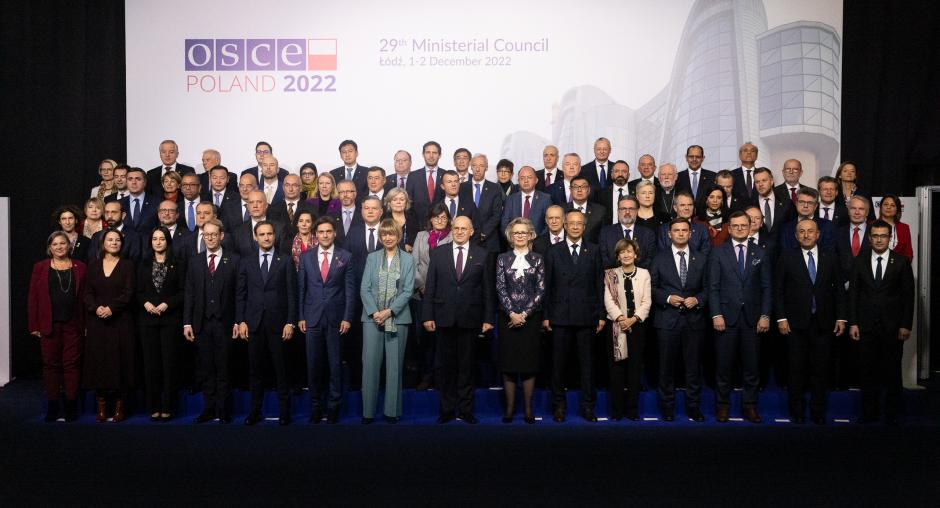OSCE Ministerial Council concludes in Łódź

ŁÓDŹ, 2 December 2022 — The OSCE Ministerial Council concluded in Łódź today. Taking place against the backdrop of Russia’s war against Ukraine, the meeting brought together Foreign Ministers and senior officials from across the OSCE participating States.
The discussions held yesterday and today focused on the ramifications and regional security challenges created by Russia’s continued war against Ukraine, from the increased risks of human trafficking to emerging energy security challenges.
The Ministerial Council was also the final high-level event of the OSCE’s 2022 Polish Chairmanship. Reflecting back on a most challenging year, Polish Foreign Minister Rau said: "The preservation of peace and security, dialogue and co-operation, and the human dimension of the OSCE are the cornerstones of the Organization. They are non-negotiable pillars fundamental to our better future, which, as I firmly believe, is coming. I consider sticking to this path the legacy of Poland’s Chairmanship-in-Office and of this Organization.”
“North Macedonia stands ready to assume its share of the responsibility, being entrusted to serve as a Chair of this Organization. Idleness is not an option. We need to find ways to empower the OSCE, allowing its mechanisms the required space to continue making a difference. We are all aware of the good things this Organization has done. Thus, if we are united around its existence and relevance, it is our duty to keep it capacitated,” said the incoming OSCE Chairperson-in-Office, Minister of Foreign Affairs of North Macedonia Bujar Osmani.
“As we look back at this year, we see the devastation the war has brought – and we also see how to OSCE has delivered – to alleviate challenges posed by the war and to support those actors and institutions that provide stability and security not only on Ukraine but on Moldova, Central Asia, South-eastern Europe, and well beyond,” said OSCE Secretary General Helga Maria Schmid.
“Throughout our meetings over the last two days, Ministers agreed that the OSCE – the multilateral platform with all relevant stakeholders at the table for European and Eurasian security – is unique and remains vitally important – including for the challenges ahead,” she added.
The OSCE brings together 57 participating States from across the northern hemisphere. In addition to its Secretariat in Vienna, it includes 12 field operations in South-Eastern Europe, Moldova and Central Asia, as well as three independent institutions: the High Commissioner on National Minorities, the Representative on Freedom of the Media, and the Office for Democratic Institutions and Human Rights.
